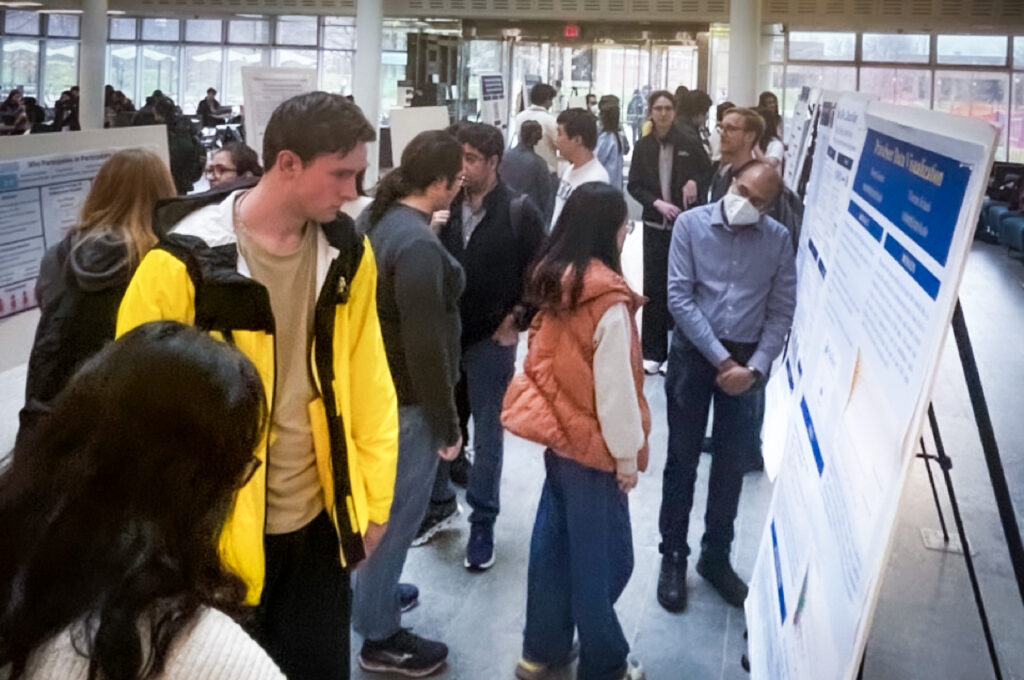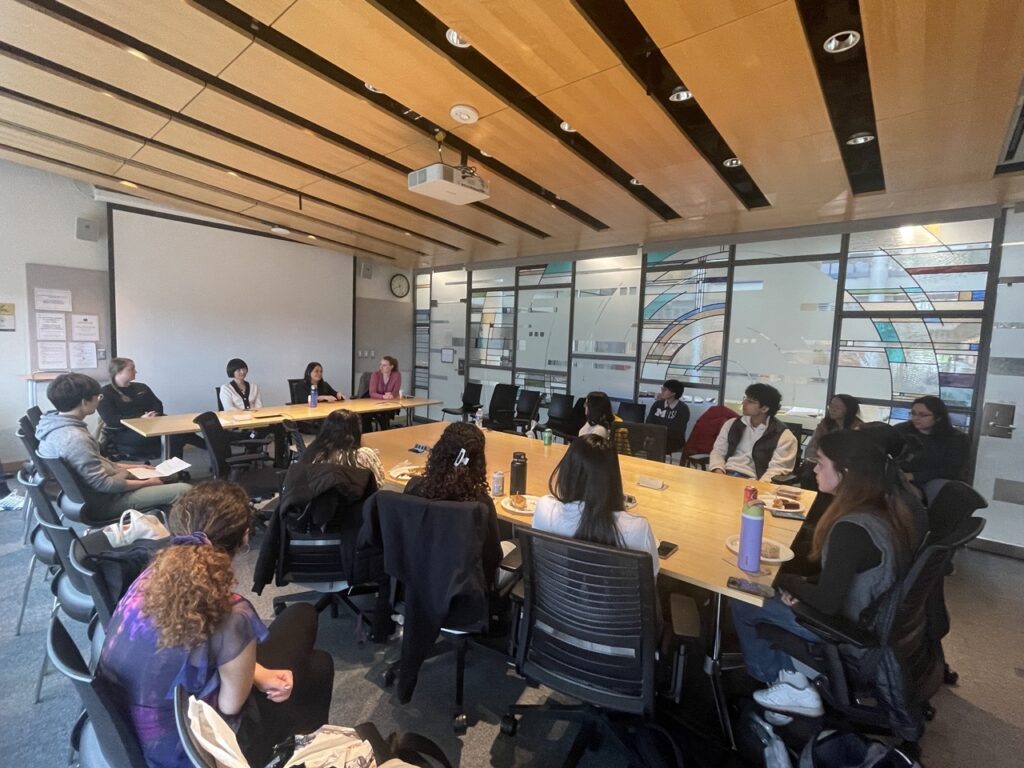Explore CS Research program highlights student research in annual showcase

A total of 14 undergraduate students participated in this year’s iteration of the Explore CS Research program, which aims to expose students to the research process through workshops, training, and mentorship. Targeted toward women and underrepresented minorities but serving all students, the yearlong program seeks to give students direct research experience and foster a diverse community of scholars empowered to tackle interdisciplinary challenges in computer science.
First launched in 2018, the Explore CS Research program is directed by Janice M. Jenkins Collegiate Professor of Computer Science and Engineering Rada Mihalcea, along with CSE grad students Aylin Gunal and Andrew Lee. RENEW-CS Project Coordinator Rachel Germaine provided additional assistance.
“Through the Explore CS Research program, students gain experience in all stages of research, from conceptualization to presentation,” said Mihalcea. “This year’s cohort was truly exceptional. The students showed great innovation and drive in carrying out their projects.”
On Thursday, April 11, the Explore CS Research program celebrated a year of fruitful research with its annual poster session, where students had the opportunity to share their projects. Students performed outstanding research on a range of computer science topics, from large language models (LLMs) to robotics to epidemiology modeling. Some of the student projects included:
- Improving the segmentation and visual perception of MBot, a two-wheeled mobile robot, leveraging the latest techniques in computer vision, machine learning, and robotics.
- Addressing silent data corruption using innovative security methods, such as bounded model checking and bit flip analysis.
- Evaluating the properties of the logarithmic market scoring rule (LMSR), an algorithmic marker used in prediction markets.
- Developing data visualizations to improve the accessibility of Privaseer, a corpus of over 1 million English privacy policies.
- Using computer vision methods to more accurately classify coin dies for the purposes of die matching, an important component of numismatics, the historical study of currency, money, and coins.
Students were aided in their research by dedicated mentors, including U-M faculty members Elizabeth Bondi-Kelly, Dallas Card, Mithun Chakraborty, Xiaoxiao Du, Paul Grubbs, Manos Kapritsos, Sindhu Kutty, Yatin Manerkar, Alexander Rodríguez, and Florian Schaub, as well as PhD students Anna Kay, Mia Kelly, and Joseph Peper.
“We were so impressed with the quality and scope of this year’s projects,” said Gunal. “It really showcases the value of mentorship in supporting excellent research, as well as the dedication of the program’s students in taking on some of the most challenging research areas in computer science.”

The event also included a panel discussion featuring talks by Hongmei Ge, Partner Software Engineering Director at Microsoft and CSE alum; Jessica DeJong, Engineering Program Lead at Aptiv and also a CSE alum; Veronica Perez-Rosas, Assistant Research Scientist in CSE at U-M; and Dr. Candice Martin, a computational scientist at KLA and Michigan Engineering alum. Panelists discussed their professional trajectories and provided students with valuable insight on pursuing a career in research.
“The panel was a way for students to see where research can take you professionally,” said Lee, “from the tech industry to academia and beyond.”
In all, the concluding events of this year’s Explore CS Research program demonstrate the value of hands-on experience, mentorship, and diversity in fostering innovation and research excellence.
“Our hope is that the Explore CS Research program will give students a strong research foundation that will propel them forward in their careers,” said Mihalcea, “and form a capable and diverse community of future researchers in the field of computer science.”
 MENU
MENU 
